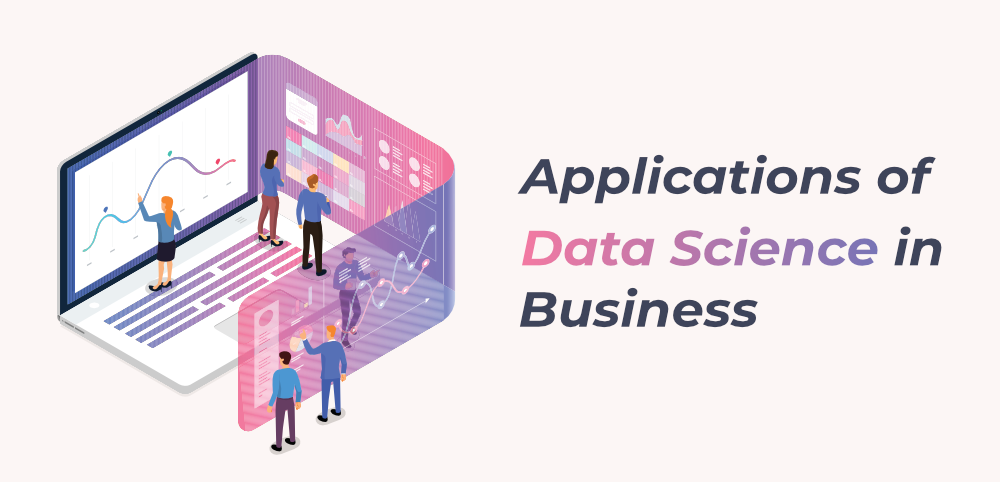- Alex M
- Supply Chain
- 0 Comments
Data science has revolutionized how businesses operate, offering tools and methodologies that transform raw data into actionable insights. These insights help businesses enhance decision-making, improve customer experience, and provide personalized services. This comprehensive guide explores the various applications of data science in business, with detailed explanations of its impact on decision-making, customer experience, and personalized services through recommendation engines.
Enhancing Decision-Making with Data Analytics
Explanation
Data analytics involves the systematic computational analysis of data to discover patterns, correlations, and trends that inform business decisions. This transition from reactive to proactive and predictive decision-making is powered by advanced data analytics.
- Informed Decision-Making: Data analytics provides businesses with empirical evidence, supporting more accurate and informed decisions. By analyzing historical and real-time data, companies can predict future trends and make strategic decisions.
- Risk Management: Predictive analytics identifies potential risks and opportunities, allowing businesses to mitigate risks and capitalize on opportunities proactively.
- Operational Efficiency: Data analytics helps in pinpointing inefficiencies in business processes, enabling companies to streamline operations and reduce costs.
- Invest in advanced data analytics tools such as SAS, R, and Python, which offer extensive analytical capabilities.
- Ensure data quality by implementing robust data governance practices.
- Train employees to interpret data insights and integrate them into business processes.
Utilizing Data Science for Customer Experience Improvement
Explanation: Customer experience (CX) is a crucial factor in retaining customers and enhancing brand loyalty. Data science enables businesses to analyze customer data to understand behavior, preferences, and feedback, leading to more personalized and satisfactory experiences.
Benefits:
- Personalized Interactions: By analyzing customer data, businesses can tailor interactions to meet individual needs and preferences, enhancing customer satisfaction
- Improved Customer Support: Data science helps in analyzing customer support interactions to identify common issues and areas for improvement, leading to better customer service.
- Customer Retention: Understanding customer behavior and preferences helps in developing strategies to retain customers and reduce churn rates.
Implementation:
- Use customer relationship management (CRM) systems integrated with data analytics to gather and analyze customer data.
- Implement machine learning algorithms to predict customer needs and behaviors.
- Utilize sentiment analysis tools to understand customer feedback from social media and other platforms.
Use Case: An e-commerce platform leverages data science to analyze browsing and purchase history, offering personalized recommendations and targeted promotions, significantly improving the customer shopping experience.
Implementing Recommendation Engines for Personalized Services
Explanation: Recommendation engines use machine learning algorithms to analyze user data and predict preferences, providing personalized content and product recommendations. This not only enhances user experience but also drives sales and engagement.
Benefits:
- Increased Sales: Personalized recommendations lead to higher conversion rates as customers are more likely to purchase products that match their preferences.
- Customer Satisfaction: Providing relevant recommendations improves customer satisfaction and loyalty.
- Enhanced User Engagement: Tailored content keeps users engaged, increasing the time they spend on the platform.
Implementation:
- Collect user data from various touchpoints such as browsing history, purchase history, and interaction data.
- Use collaborative filtering, content-based filtering, or hybrid recommendation systems to generate recommendations.
- Continuously update and refine the recommendation algorithms based on user feedback and behavior.
Use Case: A streaming service uses a recommendation engine to suggest movies and TV shows based on users’ viewing history and ratings, enhancing user satisfaction and engagement.
Additional Applications of Data Science in Business
Fraud Detection and Prevention
Data science plays a vital role in detecting and preventing fraud. By analyzing transaction patterns and identifying anomalies, businesses can detect fraudulent activities in real-time.
Benefits:
- Reduced Financial Losses: Early detection of fraudulent activities helps in preventing significant financial losses.
- Enhanced Security: Continuous monitoring and analysis of transactions improve overall security.
- Regulatory Compliance: Data science helps businesses comply with regulatory requirements by identifying and reporting suspicious activities.
Implementation:
- Implement machine learning models to analyze transaction data and detect anomalies.
- Use real-time monitoring systems to flag suspicious activities.
- Continuously update fraud detection models based on new data and fraud patterns.
Use Case: A financial institution uses data science to monitor credit card transactions in real-time, identifying and blocking fraudulent activities before they can cause significant harm.
Supply Chain Optimization
Data science optimizes supply chain operations by predicting demand, managing inventory levels, and optimizing logistics.
Benefits:
- Cost Reduction: Efficient supply chain management reduces operational costs.
- Improved Efficiency: Predictive analytics ensures timely delivery of products, enhancing overall efficiency.
- Customer Satisfaction: Optimized supply chains result in better product availability and faster delivery times, improving customer satisfaction.
Implementation:
- Use predictive analytics to forecast demand and plan inventory levels.
- Implement data-driven logistics management to optimize routes and reduce transportation costs.
- Continuously monitor and analyze supply chain data to identify areas for improvement.
Use Case: A manufacturing company leverages data science to forecast demand for raw materials, optimizing inventory levels and reducing storage costs.
Conclusion
Data science offers a plethora of applications that can transform business operations, enhance decision-making, improve customer experience, and provide personalized services. By understanding the key components of data science solutions, the role of data scientists, the utilization of big data, and the implementation of machine learning models, businesses can leverage the full potential of data science. These advanced techniques and technologies enable organizations to make more informed decisions, optimize operations, and achieve better outcomes. As the importance of data science continues to grow, businesses that invest in data science capabilities will gain a significant competitive advantage.

